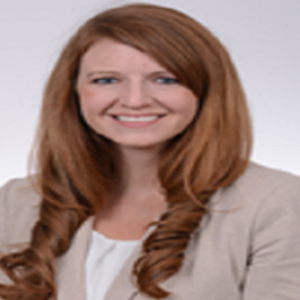Title : How training and stigma interplay in buprenorphine prescribing in the treatment of opioid use disorder
Abstract:
Medication Assisted Treatment (MAT) is the gold standard for treatment of opioid use disorder (OUD) and is preventing OUD related overdose deaths. To increase the provider capacity in administering MAT, the U.S. Drug Addiction Treatment Act 2000 (DATA 2000) enabled physicians to obtain waiver certifications to prescribe buprenorphine to treat OUD in office-based settings. Yet, only 3.6% of physicians have obtained a DATA 2000 waiver. Research demonstrates physicians’ attitudes towards individuals diagnosed with OUD, treating OUD with buprenorphine, and resource barriers decrease their willingness to obtain a DATA 2000 waiver. This study aims to examine how physician attitudes towards treating OUD and the use of MAT differ by a lack of training, including both experiential and DATA 2000 waiver training in order to inform policymakers’ efforts to increase DATA 2000 waiver physician capacity.
Methods: We designed a 36-item cross-sectional survey from existing instruments used to measure physician attitudes towards substance use disorder (SUD). The survey examined physician training, attitudes towards individuals diagnosed with OUD, OUD treatment, the effectiveness of MAT, knowledge and training about OUD, and available resources. The survey was administered online to all Ohio physicians holding a current medical license (n = 50,777) with a response rate of 5.4% (n = 2,757).
Analysis: We divided physicians into three groups: DATA 2000 waiver physicians (n = 320); non-DATA 2000 waiver physicians with experiential training in SUD or OUD (n = 122), and non-DATA 2000 waiver physicians without experiential training in SUD or OUD (n = 2315). We used ANOVA to compare attitudinal differences among the three groups. When the ANOVA resulted in significant main effects, we then used a Turkey post hoc comparison of groups.
Results: Group comparison resulted in a significant main effect (p = 0.000) for all attitudes except that all three groups agreed family involvement was a very important part of treatment. Post hoc comparisons revealed that while DATA 2000 waiver physicians had the most favorable attitudes, non-DATA 2000 waiver physicians with experiential training in SUD or OUD had significantly more favorable attitudes towards working with individuals diagnosed with OUD, treatment using MAT, as well as confidence in knowledge and willingness to pursue further training than non-DATA 2000 waiver physicians without experiential training. Yet, non-DATA 2000 waivered physicians with experiential training felt most strongly about the lack of resources, information, guidance for working with individuals with OUD, and need for supportive services.
Conclusions and Implications: Results suggest policy initiatives to increase experiential training in OUD may destigmatize physician’s attitudes about treating individuals.




